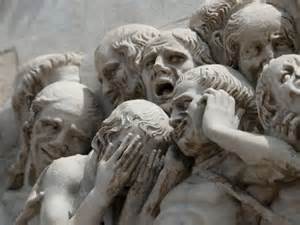 We start with Emotional Lexicons: Continuity and Change in the Vocabulary of Feeling 1700-2000 by Ute Frevert. Anna Jordanous believes this book’s strengths lie in its contextual diversity and in the thoroughness of the compilation and usage of reference sources (no. 1682, with response here).
We start with Emotional Lexicons: Continuity and Change in the Vocabulary of Feeling 1700-2000 by Ute Frevert. Anna Jordanous believes this book’s strengths lie in its contextual diversity and in the thoroughness of the compilation and usage of reference sources (no. 1682, with response here).
Next up is Elizabeth Vandiver’s Stand in the Trench, Achilles: Classical Receptions in British Poetry of the Great War, which Marguerite Johnson recommends as a truly successful interdisciplinary achievement (no. 1681).
Then we turn to Murder Most Russian: True Crime and Punishment in Late Imperial Russia by Louise McReynolds. James Ryan and the author discuss a very significant contribution to the study of modern Russian history (no. 1680).
Finally we have Joanna Cannon’s Religious Poverty, Visual Riches: Art in the Dominican Churches of Central Italy in the Thirteenth and Fourteenth Centuries, which Michael Morris finds to be delightfully inquisitive while maintaining a respectful attitude toward religious Orders (no. 1679).
